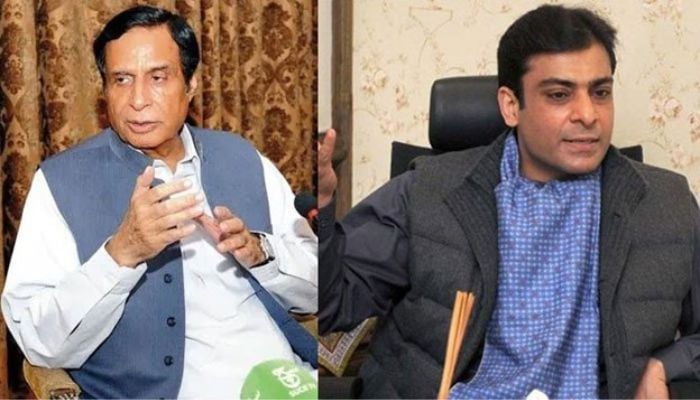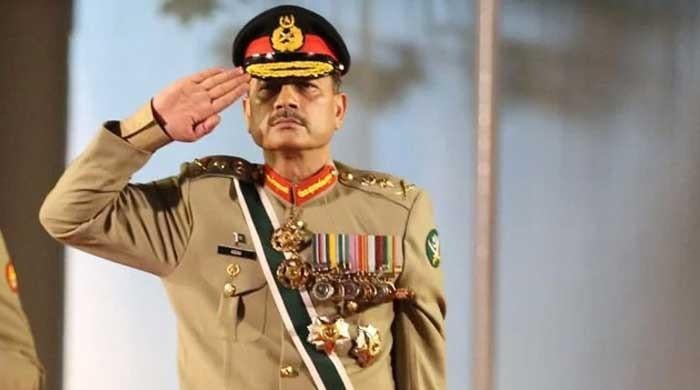The crisis in Punjab deepens
While Hamza Shahbaz might have retained the coveted position of CM Punjab for the time being, the political crisis has deepened in Punjab
July 25, 2022

Hamza Shahbaz surprisingly retained the position of CM Punjab in the runoff election for CM Punjab this past Friday. He has once again been sworn in as CM Punjab.
While Hamza Shahbaz might have retained the coveted position of CM Punjab for the time being, the political crisis has deepened in Punjab. The power struggle between the PML-N and the PTI to rule Punjab has intensified.
Whoever rules Punjab after the legal battle in the Supreme Court, one thing is certain: it will not bring the much-needed political stability in the country. It seems that the political mess in Punjab might continue in the coming days.
What happened on Friday, July 22 in the Punjab Assembly is not healthy and certainly not a good sign for democracy. Power politics is undermining democratic norms, traditions and culture. Politics based on money, influence and power with clear disregard to ideology and principles is not going to strengthen democracy.
The PTI and Chaudhry Pervaiz Elahi have filed petitions in the Supreme Court, which is hearing the case. And Hamza’s win might just be short-lived.
Friday’s Punjab Assembly proceedings were not without a real-life political drama full of sudden twists and turns, with the second round of election for CM Punjab between Ch Pervaiz Elahi and Hamza Shahbaz turning into a high voltage political drama.
Chaudhry Pervaiz Elahi was ahead in the numbers game. The only possibility for Hamza Shahbaz to retain the position of CM Punjab was via abstentions of at least half a dozen PTI MPAs. PTI chairman Imran Khan and other PTI leaders had also accused former president Asif Zardari of using money to buy PTI MPAs. So we were expecting some defections within PTI ranks.
But that didn’t happen. All the 176 PTI MPAs present in the assembly voted for Chaudhry Pervaiz Elahi. The PTI has 178 MPAs in the Punjab Assembly; one member abstained and deputy speaker didn’t cast his vote because he was presiding over the session. So the hue and cry by PTI leaders about possible defections proved to be mere propaganda.
Instead of defections, the real surprise was a letter by Chaudhry Shujaat Hussain directing his party MPAs to vote for Hamza Shahbaz.
Eventually, Chaudhry Pervaiz Elahi lost the election despite getting more votes than Hamza Shahbaz. He got 186 votes and Hamza secured 176 votes. Deputy Speaker Punjab Assembly Sardar Dost Mazari read out the letter sent in by PML-Q head Chaudhry Shujaat Hussain in which the latter directed his party MPAs to vote for Hamza Shahbaz. The deputy speaker then rejected all the 10 votes of the PML-Q for violating the direction of their party head.
In this, the deputy speaker turned the majority owned by the PTI and PML-Q into a minority on technical grounds. The fact is that the PML-N does not enjoy a majority in the Punjab Assembly. Such tactics might bring temporary successes but in the long run weaken democracy and parliamentary norms and traditions. The constitution must not be undermined for short-term gains; it must be followed in letter and spirit without being twisted.
The deputy speaker’s ruling was based on the Supreme Court’s decision in the case interpreting Article 63A. The Supreme Court had at the time ruled that no MNA or MPA can cast his/her vote against the direction of the party head. The court had said that such votes would not be counted and the dissenting MPA or MNA would be disqualified.
Some legal and constitutional experts have expressed their reservations about the Supreme Court’s interpretation of Article 63A of the constitution. The Apex court’s decision thus empowered the Punjab Assembly deputy speaker to reject the votes of defectors. In effect, the PTI is a victim of its own narrative and actions.
PTI Chairman Imran Khan has in a video message expressed his surprise on Friday’s election of the CM Punjab, and once again accused Zardari of influencing the process. The former prime minister once again gave a lecture on the democratic traditions of Western democracy and respecting the majority. But when in power, he himself didn’t strengthen democratic traditions and the principle of majority rule. He turned the PML-N’s majority in the Punjab Assembly after the 2018 general elections into a minority and formed the government in Punjab with the help of independent candidates.
Imran had the chance to establish democratic traditions but he preferred power over principle. He did the same during the Senate chairman’s election, and celebrated Sadiq Sanjrani’s victory in the Senate when he was in minority. Sanjrani’s victory was the result of defections from PML-N and PPP senators. Imran had at the time encouraged defections from the opposition camp to gain or protect short-term political interests.
During his stint in power, Imran Khan failed to establish true democratic traditions and to uphold the constitution during the vote of no-confidence against him. He blatantly violated the constitution through the deputy speaker of the National Assembly. The Supreme Court had declared former deputy speaker Qasim Suri’ s ruling to reject the no-confidence motion against Imran khan and the actions taken by Imran Khan afterwards a clear violation of the constitution – but Imran still believes he did nothing wrong.
When people from other parties defect to the PTI, Imran Khan calls it taking wickets but when PTI members defect to other parties, he calls it ‘lotacracy’.
Politicians on both sides of the aisle are failing the people, who are drowning in poverty, price hikes, and unemployment and finding it hard to feed themselves. The economic crisis has hit the poor and working class very hard. They are finding it hard to survive. But politicians are busy settling scores with each other. The people of the country want a clear change in their lives. They want jobs, lower inflation and basic needs of life at affordable prices.
The focus of the federal and provincial governments must be on resolving the problems faced by the people. Instead, their focus is on a power grab.
The writer is a freelance journalist.











